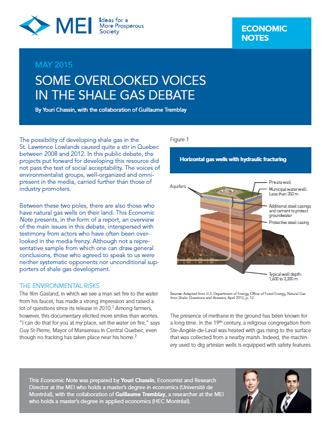
13-minute read
Some Overlooked Voices in the Shale Gas Debate
The possibility of developing shale gas in the St. Lawrence Lowlands caused quite a stir in Quebec between 2008 and 2012. In this public debate, the projects put forward for developing this resource did not pass the test of social acceptability. The voices of environmentalist groups, well-organized and omnipresent in the media, carried further than those of industry promoters. Between these two poles, there are also those who have natural gas wells on their land.

8-minute read
The State of Competition in Canada’s Telecommunications Industry – 2015
The numerous interventions carried out by the federal government to encourage the establishment of a 4th wireless telephony player across the country will hurt consumers by undermining innovation in this industry. This is all the more worrisome given that important technological revolutions are in the works that will require billions of dollars of investments from the country’s telecommunications companies. This is one of the conclusions of the 2015 edition of The State of Competition in Canada’s Telecommunications Industry.
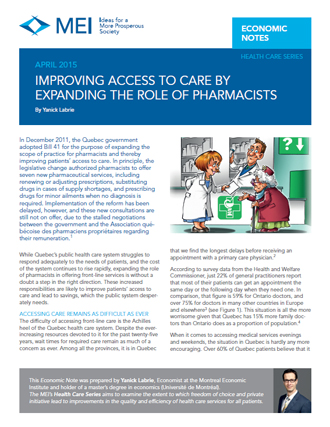
12-minute read
Improving Access to Care by Expanding the Role of Pharmacists
While Quebec’s public health care system struggles to respond adequately to the needs of patients, and the cost of the system continues to rise rapidly, expanding the role of pharmacists in offering front-line services is without a doubt a step in the right direction. These increased responsibilities are likely to improve patients’ access to care and lead to savings, which the public system desperately needs.
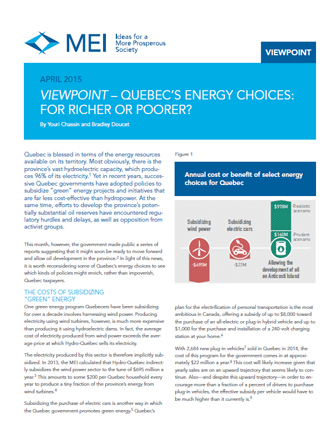
8-minute read
Viewpoint – Quebec’s Energy Choices: For Richer or Poorer?
Quebec is blessed in terms of the energy resources available on its territory. Most obviously, there is the province’s vast hydroelectric capacity, which produces 96% of its electricity. This month, the government made public a series of reports suggesting that it might soon be ready to move forward and allow oil development in the province. In light of this news, it is worth reconsidering some of Quebec’s energy choices to see which kinds of policies might enrich, rather than impoverish, Quebec taxpayers.
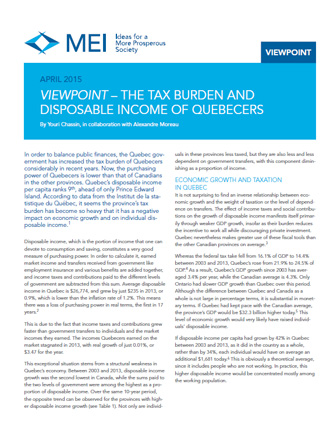
1-minute read
Viewpoint – The Tax Burden and Disposable Income of Quebecers
In order to balance public finances, the Quebec government has increased the tax burden of Quebecers considerably in recent years. Now, the purchasing power of Quebecers is lower than that of Canadians in the other provinces. Quebec’s disposable income per capita ranks 9th, ahead of only Prince Edward Island. According to data from the Institut de la statistique du Québec, it seems the province’s tax burden has become so heavy that it has a negative impact on economic growth and on individual disposable income.
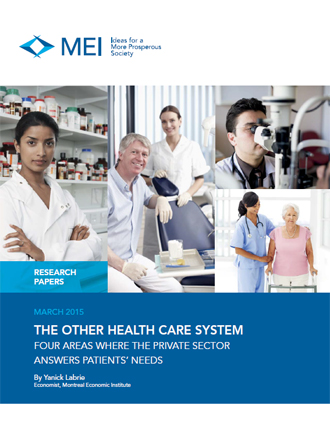
2-minute read
The Other Health Care System: Four Areas Where the Private Sector Answers Patients’ Needs
The recurring problems with which Canadian patients are faced, such as overcrowded emergency rooms and the inability of seeing a doctor when you need to, regularly occupy the front pages of our daily newspapers. In international rankings, Canada systematically finds itself at the bottom of the pack, among the countries where waiting times for health care are the longest. Yet there exists another health care system, an essentially private one that works well but that does not always get the credit it deserves.
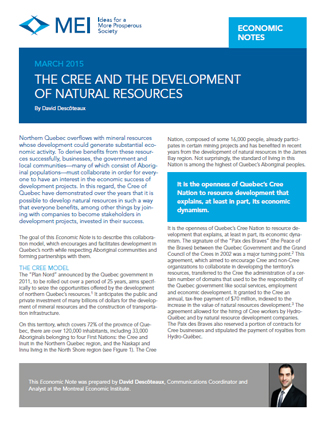
1-minute read
The Cree and the Development of Natural Resources
Northern Quebec overflows with mineral resources whose development could generate substantial economic activity. To derive benefits from these resources successfully, businesses, the government and local communities—many of which consist of Aboriginal populations—must collaborate in order for everyone to have an interest in the economic success of development projects.
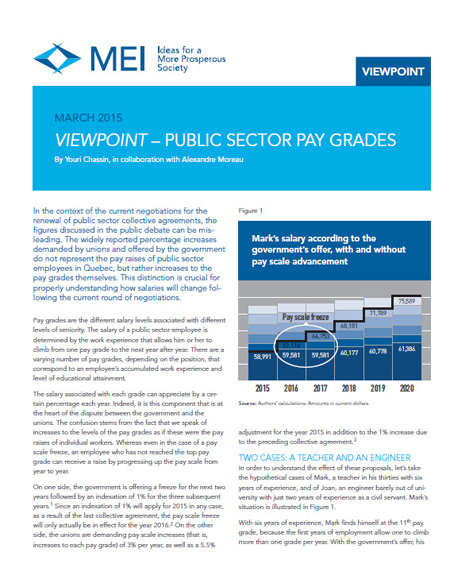
1-minute read
Viewpoint – Public Sector Pay Grades
In the context of the current negotiations for the renewal of public sector collective agreements, the figures discussed in the public debate can be misleading. The widely reported percentage increases demanded by unions and offered by the government do not represent the pay raises of public sector employees in Quebec, but rather increases to the pay grades themselves. This distinction is crucial for properly understanding how salaries will change following the current round of negotiations.
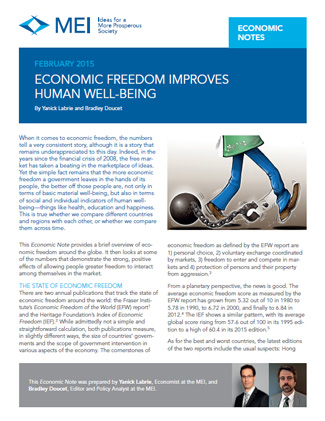
1-minute read
Economic Freedom Improves Human Well-Being
In the years since the financial crisis of 2008, the free market has taken a beating in the marketplace of ideas. Yet the simple fact remains that the more economic freedom a government leaves in the hands of its people, the better off those people are, not only in terms of basic material well-being, but also in terms of social and individual indicators of human wellbeing. This Economic Note provides a brief overview of economic freedom around the globe.
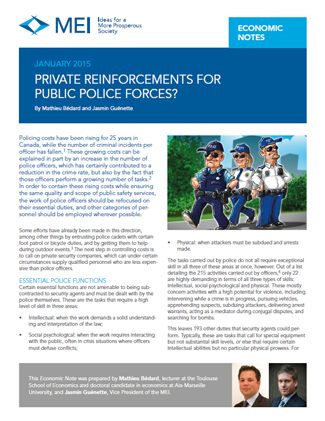
2-minute read
Private Reinforcements for Public Police Forces?
Policing costs have been rising for 25 years in Canada, while the number of criminal incidents per officer has fallen. These growing costs can be explained in part by an increase in the number of police officers, which has certainly contributed to a reduction in the crime rate, but also by the fact that those officers perform a growing number of tasks.

